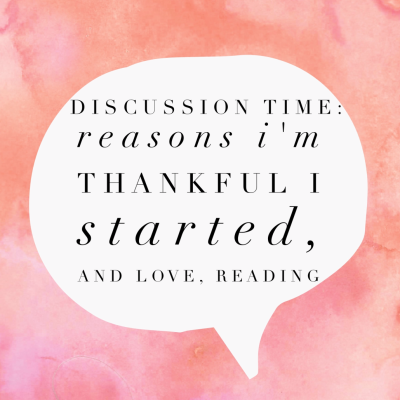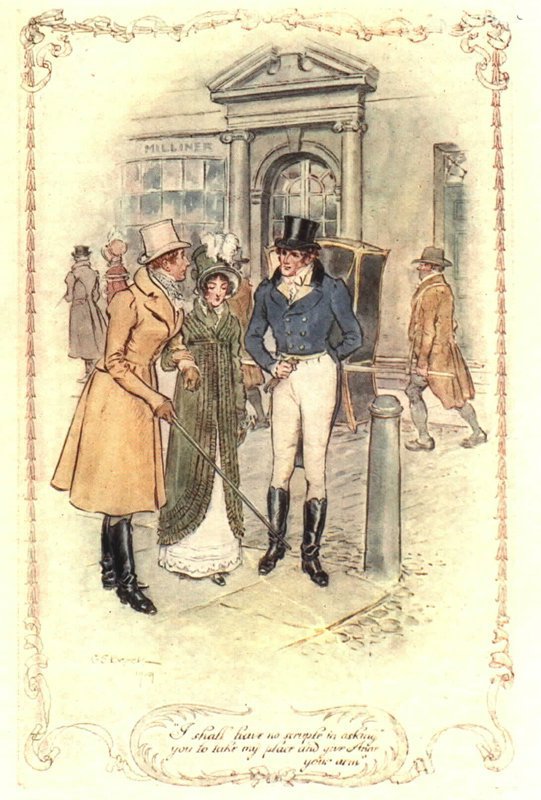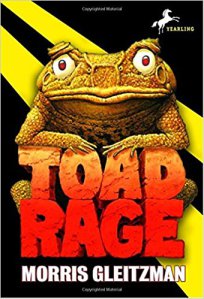We begin with one of my favourite novels here, and find some fascinating books along the way! As always, this list has been collated from the Goodreads ‘Readers Also Enjoyed’ tool, which I find invaluable for ensuring that I will never get through my TBR lists, even if I should live to the age of 150 or thereabouts.
1. The Language of Flowers by Vanessa Diffenbaugh
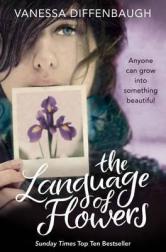 ‘The Victorian language of flowers was used to convey romantic expressions: honeysuckle for devotion, asters for patience, and red roses for love. But for Victoria Jones, it’s been more useful in communicating mistrust and solitude. After a childhood spent in the foster-care system, she is unable to get close to anybody, and her only connection to the world is through flowers and their meanings. Now eighteen and emancipated from the system with nowhere to go, Victoria realizes she has a gift for helping others through the flowers she chooses for them. But an unexpected encounter with a mysterious stranger has her questioning what’s been missing in her life. And when she’s forced to confront a painful secret from her past, she must decide whether it’s worth risking everything for a second chance at happiness.‘
‘The Victorian language of flowers was used to convey romantic expressions: honeysuckle for devotion, asters for patience, and red roses for love. But for Victoria Jones, it’s been more useful in communicating mistrust and solitude. After a childhood spent in the foster-care system, she is unable to get close to anybody, and her only connection to the world is through flowers and their meanings. Now eighteen and emancipated from the system with nowhere to go, Victoria realizes she has a gift for helping others through the flowers she chooses for them. But an unexpected encounter with a mysterious stranger has her questioning what’s been missing in her life. And when she’s forced to confront a painful secret from her past, she must decide whether it’s worth risking everything for a second chance at happiness.‘
2. The World We Found by Thrity Umrigar 
‘Thrity Umrigar, acclaimed author of The Space Between Us and The Weight of Heaven, returns with a breathtaking new novel—a skillfully wrought, emotionally resonant story of four women and the indelible friendship they share.‘
3. The Folded Earth by Anuradha Roy
‘Roy has returned with another masterpiece that is already earning international prize attention, an evocative and deeply moving tale of a young woman making a new life for herself amid the foothills of the Himalaya. Desperate to leave a private tragedy behind, Maya abandons herself to the rhythms of the 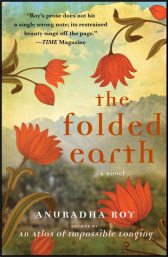 little village, where people coexist peacefully with nature. But all is not as it seems, and she soon learns that no refuge is remote enough to keep out the modern world. When power-hungry politicians threaten her beloved mountain community, Maya finds herself caught between the life she left behind and the new home she is determined to protect. Elegiac, witty, and profound by turns, and with a tender love story at its core, The Folded Earth brims with the same genius and love of language that made An Atlas of Impossible Longing an international success and confirms Anuradha Roy as a major new literary talent.‘
little village, where people coexist peacefully with nature. But all is not as it seems, and she soon learns that no refuge is remote enough to keep out the modern world. When power-hungry politicians threaten her beloved mountain community, Maya finds herself caught between the life she left behind and the new home she is determined to protect. Elegiac, witty, and profound by turns, and with a tender love story at its core, The Folded Earth brims with the same genius and love of language that made An Atlas of Impossible Longing an international success and confirms Anuradha Roy as a major new literary talent.‘
4. The Artist of Disappearance by Anita Desai 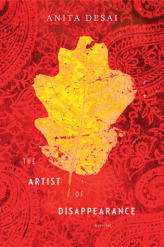
‘A triptych of beautifully crafted novellas make up Anita Desai’s exquisite new book. Set in modern India, but where history still casts a long shadow, the stories move beyond the cities to places still haunted by the past, and to characters who are, each in their own way, masters of self-effacement. In ‘The Museum of Final Journeys’ an unnamed government official is called upon to inspect a faded mansion of forgotten treasures, each sent home by the absent, itinerant master. As he is taken through the estate, wondering whether to save these precious relics, he reaches the final – greatest – gift of all, looming out of the shadows. In ‘Translator, Translated’, middle-aged Prema meets her successful publisher friend Tara at a school reunion. Tara hires her as a translator, but Prema, buoyed by her work and the sense of purpose it brings, begins deliberately to blur the line between writer and translator, and in so doing risks unravelling her desires and achievements. The final story is of Ravi, living hermit-like in the burnt-out shell of his family home high up in the Himalayan mountains. He cultivates not only silence and solitude but a secret hidden away in the woods, concealed from sight. When a film crew from Delhi intrude upon his seclusion, it compels him to withdraw even further until he magically and elusively disappears… Rich and evocative, remarkable in their clarity and sensuous in their telling, these stories remind us of the extraordinary yet delicate power of this pre-eminent writer.‘
5. All About H. Hatterr by G.V. Desani
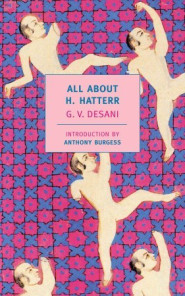 ‘Wildly funny and wonderfully bizarre, All About H. Hatterr is one of the most perfectly eccentric and strangely absorbing works modern English has produced. H. Hatterr is the son of a European merchant officer and a lady from Penang who has been raised and educated in missionary schools in Calcutta. His story is of his search for enlightenment as, in the course of visiting seven Oriental cities, he consults with seven sages, each of whom specializes in a different aspect of “Living.” Each teacher delivers himself of a great “Generality,” each great Generality launches a new great “Adventure,” from each of which Hatter escapes not so much greatly edified as by the skin of his teeth. The book is a comic extravaganza, but as Anthony Burgess writes in his introduction, “it is the language that makes the book. . . . It is not pure English; it is like Shakespeare, Joyce, and Kipling, gloriously impure.”‘
‘Wildly funny and wonderfully bizarre, All About H. Hatterr is one of the most perfectly eccentric and strangely absorbing works modern English has produced. H. Hatterr is the son of a European merchant officer and a lady from Penang who has been raised and educated in missionary schools in Calcutta. His story is of his search for enlightenment as, in the course of visiting seven Oriental cities, he consults with seven sages, each of whom specializes in a different aspect of “Living.” Each teacher delivers himself of a great “Generality,” each great Generality launches a new great “Adventure,” from each of which Hatter escapes not so much greatly edified as by the skin of his teeth. The book is a comic extravaganza, but as Anthony Burgess writes in his introduction, “it is the language that makes the book. . . . It is not pure English; it is like Shakespeare, Joyce, and Kipling, gloriously impure.”‘
6. Born Under Saturn: The Character and Conduct of Artists by Rudolf Wittkower 
‘Born Under Saturn is a classic work of scholarship written with a light and winning touch. Margot and Rudolf Wittkower explore the history of the familiar idea that artistic inspiration is a form of madness, a madness directly expressed in artists’ unhappy and eccentric lives. This idea of the alienated artist, the Wittkowers demonstrate, comes into its own in the Renaissance, as part of the new bid by visual artists to distinguish themselves from craftsmen, with whom they were then lumped together. Where the skilled artisan had worked under the sign of light-fingered Mercury, the ambitious artist identified himself with the mysterious and brooding Saturn. Alienation, in effect, was a rung by which artists sought to climb the social ladder. As to the reputed madness of artists; well, some have been as mad as hatters, some as tough-minded as the shrewdest businessmen, and many others wildly and willfully eccentric but hardly crazy. What is certain is that no book presents such a splendid compendium of information about artists’ lives, from the early Renaissance to the beginning of the Romantic era, as Born Under Saturn. The Wittkowers have read everything and have countless anecdotes to relate: about artists famous and infamous; about suicide, celibacy, wantonness, weird hobbies, and whatnot. These make Born Under Saturn a comprehensive, quirky, and endlessly diverting resource for students of history and lovers of the arts.‘
7. The New York Stories by Elizabeth Hardwick
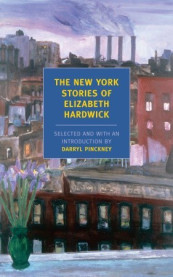 ‘Elizabeth Hardwick was one of America’s great postwar women of letters, celebrated as a novelist and as an essayist. Until now, however, her slim but remarkable achievement as a writer of short stories has remained largely hidden, with her work tucked away in the pages of the periodicals—such as Partisan Review, The New Yorker, and The New York Review of Books—in which it originally appeared. This first collection of Hardwick’s short fiction reveals her brilliance as a stylist and as an observer of contemporary life. A young woman returns from New York to her childhood Kentucky home and discovers the world of difference within her. A girl’s boyfriend is not quite good enough, his “silvery eyes, light and cool, revealing nothing except pure possibility, like a coin in hand.” A magazine editor’s life falls strangely to pieces after she loses both her husband and her job. Individual lives and the life of New York, the setting or backdrop for most of these stories, are strikingly and memorably depicted in Hardwick’s beautiful and razor-sharp prose.‘
‘Elizabeth Hardwick was one of America’s great postwar women of letters, celebrated as a novelist and as an essayist. Until now, however, her slim but remarkable achievement as a writer of short stories has remained largely hidden, with her work tucked away in the pages of the periodicals—such as Partisan Review, The New Yorker, and The New York Review of Books—in which it originally appeared. This first collection of Hardwick’s short fiction reveals her brilliance as a stylist and as an observer of contemporary life. A young woman returns from New York to her childhood Kentucky home and discovers the world of difference within her. A girl’s boyfriend is not quite good enough, his “silvery eyes, light and cool, revealing nothing except pure possibility, like a coin in hand.” A magazine editor’s life falls strangely to pieces after she loses both her husband and her job. Individual lives and the life of New York, the setting or backdrop for most of these stories, are strikingly and memorably depicted in Hardwick’s beautiful and razor-sharp prose.‘
8. The Middle of the Journey by Lionel Trilling 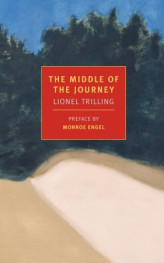
‘Published in 1947, as the cold war was heating up, Lionel Trilling’s only novel was a prophetic reckoning with the bitter ideological disputes that were to come to a head in the McCarthy era. The Middle of the Journey revolves around a political turncoat and the anger his action awakens among a group of intellectuals summering in Connecticut. The story, however, is less concerned with the rights and wrongs of left and right than with an absence of integrity at the very heart of the debate. Certainly the hero, John Laskell, staging a slow recovery from the death of his lover and a near-fatal illness of his own, comes to suspect that the conflicts and commitments involved are little more than a distraction from the real responsibilities, and terrors, of the common world. A detailed, sometimes slyly humorous, picture of the manners and mores of the intelligentsia, as well as a work of surprising tenderness and ultimately tragic import, The Middle of the Journey is a novel of ideas whose quiet resonance has only grown with time. This is a deeply troubling examination of America by one of its greatest critics.‘
Purchase from The Book Depository
Advertisements Share this:
